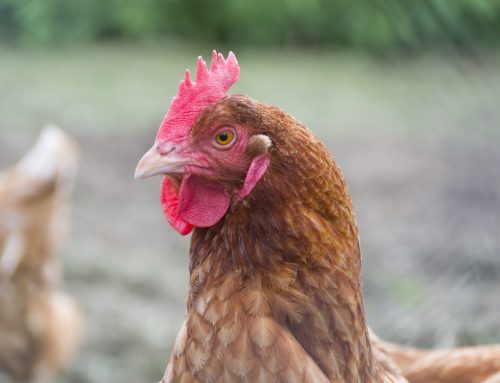On 3 May 2019, Food Standards Australia New Zealand (FSANZ) released an information paper on its proposed approach to a review of food safety standards in the Food Standards Code (the Review).
The intention is to create a consistent and up-to-date approach to food safety management with regard to so-called “high-risk horticulture,” which includes a list of leafy green vegetables, melons, berries, sprouts, and ready-to-eat minimally processed fruits and vegetables. In light of the 2018 listeria outbreak in rockmelons produced at Rombola Family Farms in Nericon NSW, the timing of the Review is unsurprising. However, reactive regulation is often ineffective at achieving its stated aims, and can create a spiral of perverse outcomes as many caught up in new regulations are not the intended targets.
A variety of food safety measures are already in place to mitigate the risks of listeria, salmonella, campylobacter and other pathogens, and all Australian producers identified as responsible for the outbreaks used as justification for the proposed Review have quality assurance (QA) and traceability arrangements in place.1 In FSANZ’s 2011 Review, the question was posed as to whether existing industry programs are sufficient to manage food safety risks or whether regulation may be more appropriate.
FSANZ abandoned its earlier pursuit of increased regulation in 2014, stating: ‘Microbiological data available from Australian surveys suggests a low level of contamination of fruits and vegetables in the Australian supply chain, although infrequent contamination with pathogenic microorganisms can occur. The available evidence provides a high degree of confidence that Australians have access to safe fresh produce.’ (FSANZ, Abandonment – Proposal P1015, 21/02/14) […]
However, in spite of the 2014 findings and assurances of public safety from Australian horticulture, ‘FSANZ has now been asked to reconsider that finding and to investigate whether the non-regulatory efforts of industry and regulators require supplementation through regulation that adds to the basic requirement that food for sale must be safe and suitable.’
Strengthening consistency in food safety management and traceability throughout the food supply chain is the stated objective of this Review. Appropriate controls may be better found by asking the right questions, including but not limited to:
- Are there weaknesses in the QA programs that audit produce sold through the supermarkets where contaminated produce has been sold?
- Will a national, mandatory regime for food safety effectively achieve a better result than current Freshcare and other supermarket food quality regimes?
- What are the links between pathogens and large-scale industrial farms or monocultures?
- What are the links between pathogens and small-scale agroecological farms?
- What proportion of those people affected by outbreaks have been immunocompromised or in a similar high risk demographic? What other public health measures can be implemented to prevent foodborne illness in vulnerable populations?
While it is currently beyond the scope of this proposed Review, how many people are made ill by fresh produce as compared with highly processed foods, allergens in foods, food additives, or chemical or active constituent residues? Is the risk of salmonella and campylobacter from fresh horticultural products the highest priority for better protection of public health?
From what can be compiled via publicly available FSANZ Food Incidents and Food Recalls websites, it is apparent that neither contains any incidents or recalls connected to small-scale agroecological farms. Our submission seeks to demystify the source and true cause of food safety management failures with a view to determine the correct regulatory approach (if any) necessary to resolve the failures. Our submission further seeks to put this Review in the scheme of the broader context of food sovereignty, which asserts everyone’s right to access culturally-appropriate and nutritious food produced and distributed in ethical and ecologically-sound ways, and our right to democratically participate in the food and agriculture system.
The Information Paper rings alarm bells for Australia’s many small-scale market gardeners. These small, diversified farms that are typically reliant on very few (if any) chemical inputs are vital to localised markets and urban, regional food bowls. (For more information about regulating for resilient, equitable food systems and food bowls, FSANZ should refer to the work of FoodPrint Melbourne.) The key concern for them is whether increased regulation of large-scale industrial horticulture would also apply to their low-risk farming systems, most of which have traceability built into their direct-to-consumer sales models.
The proposed Primary Production and Processing Standard (the Proposed Standard) would appear to also amount to prohibitions on food sharing arrangements such as non-commercial farm-to-farm produce swaps. Further, such a standard would threaten the viability of small-scale farms while industrial-scale horticulture farms will continue business-as-usual under existing food safety QA programs.
More broadly, the Foodborne Illness Reduction Strategy 2018-21+ (the Strategy) relevant to the Review did not recommend pursuing the earlier proposal to increase regulation of high-risk horticulture products, but instead focused on the much higher risks in poultry and eggs. This leaves us wondering what triggered the renewed focus on horticulture instead of poultry and eggs?
The way in which finalised food standards become law under the FSANZ Act precludes consultation to one isolated step of the process. Afterwards, only government agencies, the applicant, FSANZ Board, Forum Members and finally Ministers are able to influence decisions. The newly adopted UN Declaration on the Rights of Peasants and Other People Working in Rural Areas asserts the right of small-scale farmers to participate in ‘decision-making processes on food and agriculture policy’ (UNDROP, Article 15.4). As stakeholders and representatives of farmers and eaters, we seek further engagement in the making of new standards or major variations which can become law.
|
Recommendation 1 |
The development of a mandatory Primary Production and Processing Standard for “high-risk” horticulture (the Proposed Standard) is unacceptable. This process should be halted and substituted by an engaging, transparent and participatory approach which identifies the current priority needs of horticulture farmers, and which uses measures already available in the food regulatory system to prevent outbreaks. |
|
Recommendation 2 |
Any risk-management measures considered should target the known source of outbreaks, namely large-scale, intensive operations and sections of the processing industry engaged in the export and import of horticultural products. Appropriate assessments of relationship between scale, production methods, and risk should be a priority. |
|
Recommendation 3 |
The Office of the Commissioner for Better Regulation (OCBR), including the Red Tape Unit, and similar commissioners or authorities of all States and Territories should be notified of this Review to provide practical advice and support to the Government on the impacts of regulatory burden on agriculture. This can be done through the Regulatory Impact Assessment (RIS) and Legislative Impact Assessment (LIA) processes. |
|
Recommendation 4 |
FSANZ’s rushed attempt to commence a major assessment procedure by mid-2019 should be slowed to set a measured pace to allow for a comprehensive and effective regulatory response, inclusive of broad consultation with farmers at all scales and their representative bodies. |
|
Recommendation 5 |
That the drafting stage of such a Review be put on hold until the required steps are taken to:
|
Read AFSA’s full submission to FSANZ here: 190530_AFSASubmission_FSANZfoodsafety.




